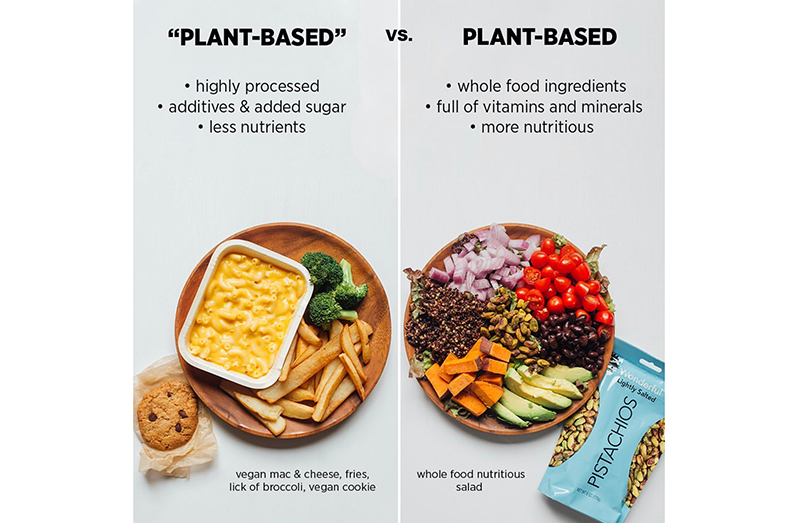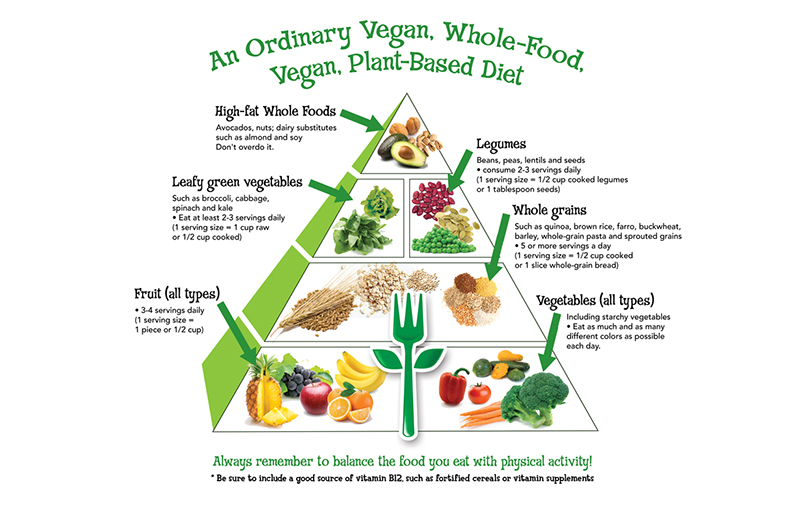VEGAN and vegetarian food are considered “the food of the future” for various reasons. From ethical considerations, environmental concerns, animal cruelty, and improved health-conscious decisions—plant-based food options are trending more than ever. Today, many restaurants worldwide, including in Guyana, now offer plant-based food options on their menus.
More than ever, people are becoming health-conscious in their decisions. You will find more individuals going to the gym and choosing to eat a healthier diet. For many, that diet consists primarily of plant-based products. In fact, several studies suggest that plant-based food items reduce the risk of heart disease, high blood pressure, and even diabetes. Plant-based diets are also linked to improved gut health due to their fibre benefits. Additionally, plant-based diets contribute to weight loss, making them increasingly popular among those seeking to manage their weight.

Many people choose plant-based diets due to ethical considerations and growing awareness of animal welfare. Unfortunately, commercial animal-rearing practices often involve inhumane techniques and questionable sanitary conditions. As a result, those who advocate for animal rights opt for plant-based diets out of compassion.
There has also been significant mainstream awareness due to television documentaries such as Forks Over Knives and Dominion, which highlight cruelty in the food industry.
Plant-based diets are also gaining popularity due to creativity and innovation in the food industry. Recently, I visited a local supermarket and saw a variety of plant-based “meat” options available. An entire section of the supermarket’s refrigerated aisle was dedicated to these meat substitutes.
From imitation crab, chicken, steak, and even calamari—these plant-based alternatives are made from ingredients like soybeans. These options offer greater flexibility, as they can be altered to suit individual preferences regarding taste and shelf life.
Transitioning to a plant-based diet can be a bold move, often involving cultural implications as well as accessibility challenges. Unfortunately, for those who love traditional dishes like pork pepperpot or chicken curry, plant-based versions must be substituted.
Critics argue that some essential daily vitamins and minerals cannot be found in plant-based meat substitutes. As a result, those following a plant-based diet may need to take supplements to ensure they receive adequate nutrients such as iron and protein.

While the future is unpredictable, the current trend of plant-based diets suggests that vegan and vegetarian options will continue to be part of culinary choices and experiences. However, the higher cost of plant-based products and cultural norms may pose challenges for those considering this lifestyle change.
Nonetheless, with advancements in technology and research on plant-based food, veganism, and meat substitutes, I am confident that more people will embark on their plant-based lifestyle journey in the near future.












